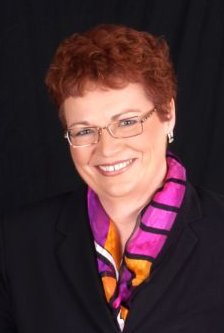My New Name
 Thursday, May 4, 2023 at 11:39PM
Thursday, May 4, 2023 at 11:39PM
 Life After The Slammer: A journey of inspiration, insight and oddity.
Life After The Slammer: A journey of inspiration, insight and oddity.
For just over five years Geraldine was involved in bringing creativity, hope and inspiration into Maryland prisons and jails, first as a volunteer and then, for almost two and a half years as a chaplain at the Maryland Correctional Training Center – Maryland’s largest men’s prison.
Since then she has been catapulted into the world of professional storytelling and speaking, traveling throughout the US and as far away as New Zealand bringing programs that cause people to laugh and think. She has performed everywhere from people's living rooms to being a featured performer at the National Festival in Jonesborough, TN - the jewel in the crown of the storytelling world.
Join Geraldine as she writes about her life after hanging up her chaplain's hat and taking to the storytelling road.
 Thursday, May 4, 2023 at 11:39PM
Thursday, May 4, 2023 at 11:39PM
 Friday, December 30, 2022 at 11:26AM
Friday, December 30, 2022 at 11:26AM  Wednesday, June 8, 2022 at 11:50PM
Wednesday, June 8, 2022 at 11:50PM I am having the most wonderful time in Williamsburg with Stephanie Garibaldi. We are here at William and Mary teaching Storytelling to Veterans who are transitioning from the services into business arenas. It is the most inspiring program - created by the Armed Services Arts Progran (ASAP) together with the University. The participants are an incredible group of men and women - brave warriors all.
The course consists of two days of teaching with a day off in the middle. On the first introductory day Stephanie and I were joined by Firefighter, Veteran and Storyteller Nick Baskerville. Tomorrow (Thursday) Stephanie and I will teach the story crafting and telling section solo.
Today, on our down day, Stephanie and I caught up on three years of news. We told stories, laughed uproariously; perused some of Williamsburg's fabulous shops; ate glorious food; and plotted out a joint storytelling adventure that we are hoping to launch in the near future.
More of that in a few weeks time.
Exciting Times lie ahead!
In the meantime we are looking forward to another full day of classes.
And so are the participants.
They told us at that at the beginning of the course they hadn't had any idea what to expect and were somewhat reticent about storytelling. But soon, as they participated in story-finding exercises and games, and shared stories in pairs, the room had rung with laughter, and camaraderie and bonding took place before our eyes.
The participants said they had been taken out of their comfort zone; rediscovered truths about themselves; remembered who they really were, and thoroughly enjoyed the journey.
They had been introduced to - and reveled in - the incredible transformative power of Storytelling.
Glory!
 Monday, January 17, 2022 at 02:36PM
Monday, January 17, 2022 at 02:36PM  Ice and Snow,
Ice and Snow,  snow storm.
snow storm.  Saturday, November 20, 2021 at 02:24PM
Saturday, November 20, 2021 at 02:24PM